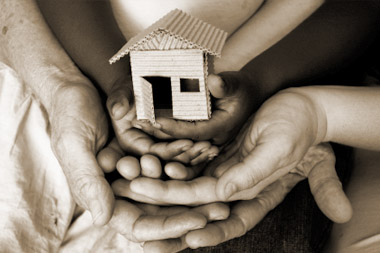A guardian or trustee may be appointed only with his/her consent, if it does not contradict the interests of a child. Close relatives have a preferential right to become guardians or trustees. Usually, custodianship is taken by grandmothers, grandfathers, adult brothers and sisters, less often by uncles and aunts of children. Also, any adult can undertake custodianship.
Only adults can become guardians and trustees, except for:
- Individuals recognized by court as legally incompetent or with limited legal capacity.
- Individuals deprived by the court of parental rights or restricted by the court in parental rights.
- Individuals relieved from the duties of a guardian or trustee for improper performance of the duties assigned to them by the laws of the Republic of Kazakhstan.
- Former adoptive parents, if the adoption was canceled by the court due to their fault.
- Individuals who, for health reasons, cannot perform the duties of a guardian or trustee.
- Individuals who do not have a permanent place of residence.
- Individuals who have an outstanding criminal record for committing an intentional crime at the time of establishing guardianship (custodianship), as well as persons specified in subclause 12) of this Clause.
- Stateless individuals.
- Males who are not in a registered marriage, except for cases of actual upbringing of a child for at least three years due to the death of a mother or her deprivation of parental rights.
- Individuals who, at the time of establishing guardianship or custodianship, do not have income that ensures a subsistence rate established by the legislation of the Republic of Kazakhstan.
- Individuals registered in narcological or neuropsychiatric dispensaries.
- Individuals who have or have had a criminal record and have been subjected to criminal prosecution (except for individuals whose criminal prosecution was terminated on the basis of subclauses 1) and 2) of part one of Article 35 of the Criminal Procedure Code of the Republic of Kazakhstan) for criminal offenses: murder, intentional injury to health, crime against public health and morality, sexual integrity, extremist or terrorist crimes, human trafficking.
- Citizens of the Republic of Kazakhstan permanently residing in the territory of the Republic of Kazakhstan who have not undergone psychological training in accordance with Clause 4 of Article 91 of the Code on Marriage and Matrimony (except for close relatives of a child).
If an urgent appointment of a guardian or trustee represented by a relative, stepfather (stepmother) is required, then the authorities performing guardianship or custodianship functions have the right to establish guardianship or custodianship without execution of psychological training, provided that a guardian/a trustee will undergo psychological training within one calendar year from the date of a child's admission to a family. If a guardian or trustee has not passed psychological training within the prescribed period, an authority performing guardianship or custodianship functions initiates revocation of guardianship or custodianship.
When appointing a guardian or trustee to a child, the following aspects are taken into account: moral and other personal qualities of a guardian or trustee, his/her ability to perform the duties of a guardian or trustee, relationship between a guardian or trustee and a child, attitude of family members of a guardian or trustee to a child, as well as, if possible, desire of a child himself/herself.
If a person appointed as a guardian or trustee over a minor is married, a mandatory consent of his/her spouse is required.
Guardians or trustees of minors are obliged to live together with a child, except in cases when a child is being brought up or treated in an educational organization or in a medical organization. Separate living of a trustee and a child who has reached the age of sixteen is allowed with the permission of an authority performing guardianship or custodianship, provided that this does not adversely affect the upbringing and protection of the rights and interests of a child.
The spouse, parents, relatives or other persons close to a child have a preferential right to be appointed as a guardian or trustee.





